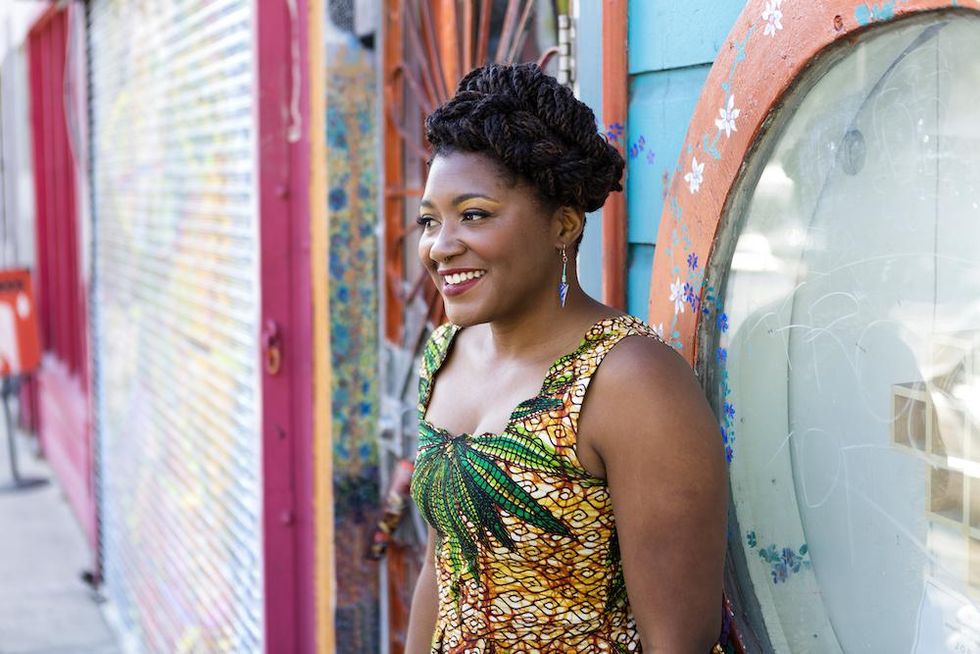
Childhood trauma comes in many forms, and while it's not always something that puts a child in direct danger, it can affect how they connect with other people throughout life. We talked to Dr. Joanne Frederick, a Licensed Mental Health Counselor and the author of Copeology, about how those wounds can affect our growth, and how connecting with your inner child can help you heal.
B+C: Are there different kinds of childhood trauma? What are the most common?
Dr. Frederick: Yes, there are several kinds of childhood wounds, the most common being emotional, physical, and divorce. Traumatic events can cause children to feel scared and helpless in a way beyond their mental and emotional processing.
These situations can be one-off events like natural disasters and injuries, or they could arise from consistent instances of verbal, physical, and sexual abuse. These events can onset emotional and psychological trauma symptoms and haunt children well into their adult lives in the form of PTSD, anxiety, or substance abuse.
 Image via Michał Bińkiewicz/Unsplash
Image via Michał Bińkiewicz/Unsplash
B+C: How do childhood wounds play a part in forming our personalities as we grow?
Dr. Frederick: Childhood wounds play a part in forming our personalities by often being difficult to identify, express, and manage emotions that these events may bring up. These wounds often internalize and/or externalize stress reactions and, as a result, may experience significant depression, anxiety, anger or trouble forming relationships.
B+C: How does childhood trauma affect us in our adulthood?
Dr. Frederick: Childhood wounds can impact a person into adulthood as they experience feelings of shame and guilt, leaving them unable to relate to others, trouble controlling emotions, heightened anxiety and depression, and anger or resentment. If a child was emotionally, physically, or sexually abused by someone close to them, it could condition how they form attachments later in life. They may start to view their caretakers through a different filter and have difficulty trusting someone to keep them safe and genuinely care for their wellbeing.
Once a child’s sense of identity is broken, it can take years of work to rebuild those fractured pieces and regain trust. If a child was raised in a home without a sense of security and protection, they might resort to developing coping mechanisms that allow them to function day-to-day just to survive. They may live on eggshells, becoming used to their parent or caretaker lashing out. This can result in sensitivity to each interaction and the moods of others, fearful that the individual will respond with rage. Children learn to adapt by withholding emotions and making waves while masking their fear, anger, and sadness.
According to the National Child Traumatic Stress Network, connections exist between childhood trauma and high-risk behavior such as smoking, unprotected sex, and experiencing chronic illnesses such as heart disease and cancer. Those who experience abuse are more likely to undergo stress and anxiety as they mature. Eventually, long-term stress and anxiety can cause physical symptoms and emotional issues throughout life.
Childhood trauma creates a fractured foundation within a child that can stay with them their entire lives. Our upbringing and the sense of security we make can impact the emotional and even physical path we take as adults.
B+C: Can taking steps to heal those wounds help us heal?
Dr. Frederick: Everyone copes and heals differently, and taking steps to recover from childhood wounds can vary from person to person how it can affect your personality. Some people become uncomfortable from re-living trauma and having it bring up old feelings. Others may take it as a chance to find closure within themselves and banish negative thoughts and behaviors that were prevalent when their trauma remained in their subconscious.
Minimize the impact of childhood trauma by learning to understand how trauma has affected your life. When you intimately understand those traumas and the way they’ve impacted you, you can learn to accept those events and the emotions they elicit for what they are. Then you can understand that they are survival responses to situations you had no control over.
The things that occur during our childhoods shape us forever, but we can minimize their effects by taking an active role in our healing. Reclaim your power by taking responsibility for your life and accepting that your past does not influence you anymore.

B+C: Why is it important to connect with your inner child?
Dr. Frederick: It may seem counterintuitive when dealing with present issues to dwell on the past. However, connecting with your inner child can help you:
- Heal any repressed emotions you experienced while growing up.
- Identify the root behind phobias or unhelpful patterns.
- Boost self-esteem and show self-compassion.
- Incorporate self-care into day-to-day life.
- Tap into a fun, creative, and playful side.
If you’re uncertain if inner child work is for you, that’s okay. Ask a therapist or flip through a self-help book on the subject and see if it resonates.

B+C: What Are Some Easy Ways To Connect To Your Inner Child?
Dr. Frederick:
- Spend time with children: If you have a relative who is young spend time with them and get into their headspace of imagination. Get “lost” in the innocent way they view the world and the interest they exhibit in things that may seem mundane to us as adults.
- Get creative: Go to a crafts store and pick up some of the art projects you might have done as a kid like making friendship bracelets, lanyards, pot holders, hook rugs etc. Don’t focus on being perfect, concentrate on being in the moment and producing something nostalgic.
- Go to a children’s movie: Go to or stream a sweet children’s movie, perhaps one that features animals. G- rated movies are purposely meant to be void of disturbing violence, themes or subject matters. Doing so gives your mind a break from your own worries and external “bad news.”
- Go to a theme park: Even if you don’t have a child, theme parks can be fun for adults too. They are a fantasy world meant for escape for people of all ages.
If you're dealing with childhood wounds, check out Psychology Today's Find A Therapist tool, and subscribe to our email newsletter for more mental health content.
Brit + Co may at times use affiliate links to promote products sold by others, but always offers genuine editorial recommendations.
Featured image via Brock Wegner/Unsplash
0 Commentaires